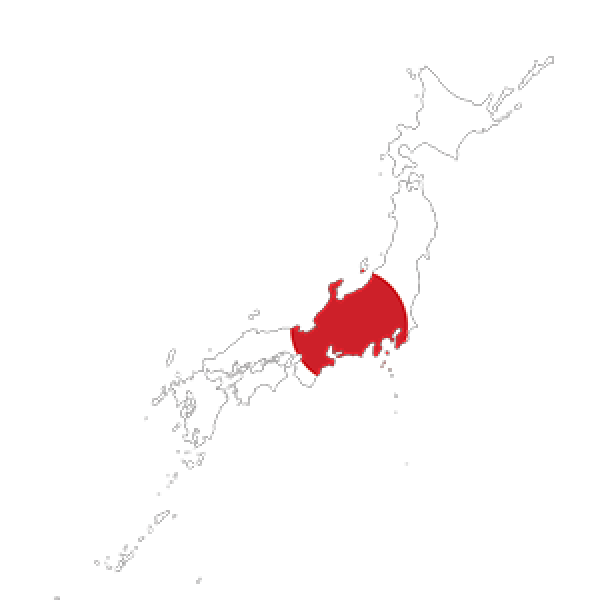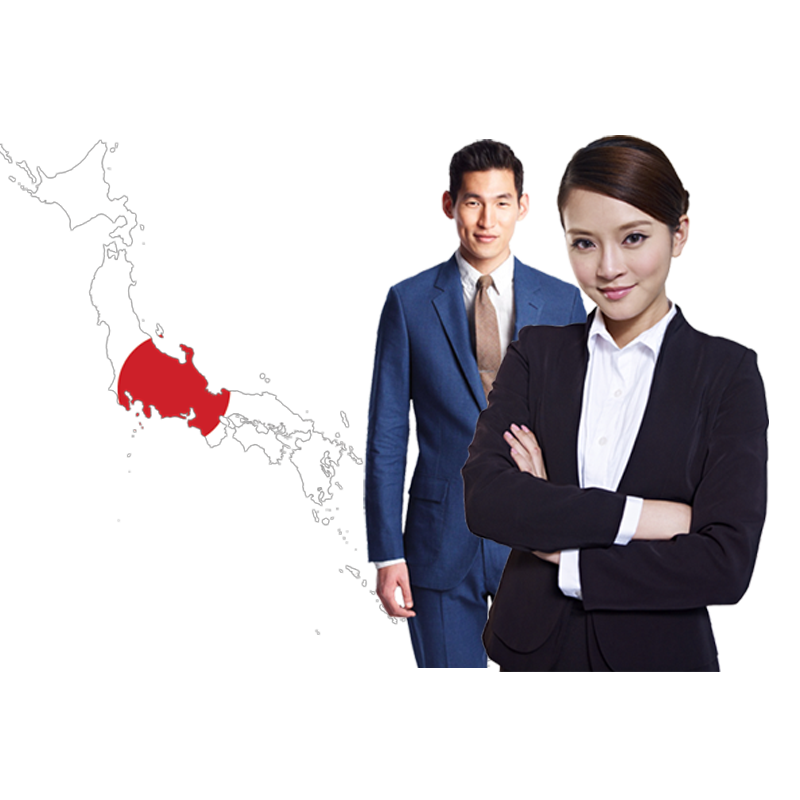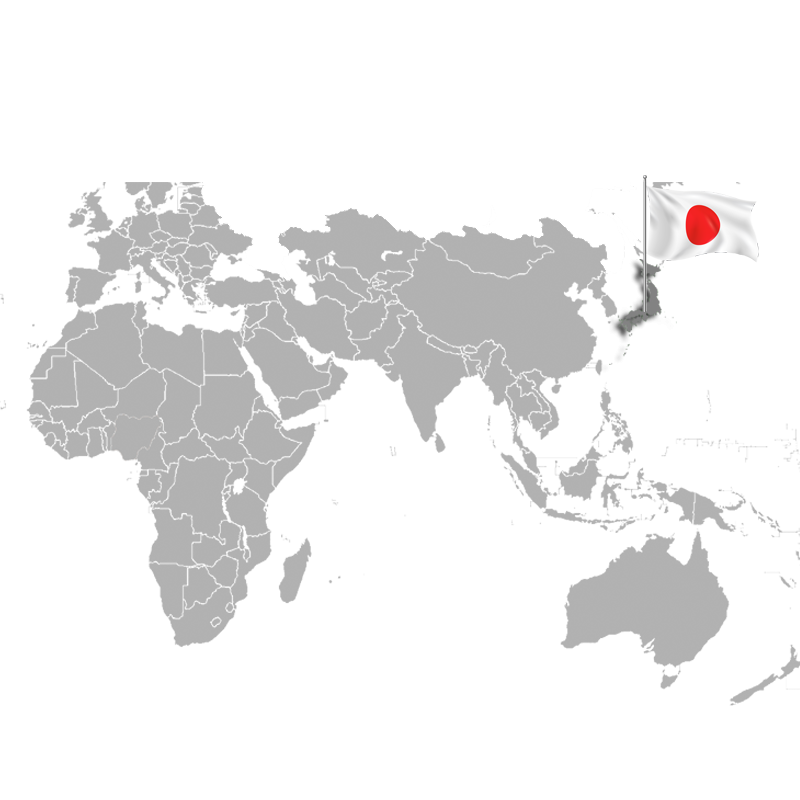Anmol Kaur
- December 10, 2022
We represent clients from all around the world in Japan every year. We see the globe as having no borders and are unafraid of language hurdles or time zones.



Please give a brief description about what it is you need to talk to our lawyers about ?
Japan, a nation in East Asia, is an archipelago of 6,852 islands in the Pacific Ocean. It is a constitutional monarchy, with Tokyo as its capital. More than 99% of the population speaks Japanese. The economy of Japan is the third largest in the world after the United States and the People’s Republic of China. Japan’s currency is the yen (JPY).
Japan is one of the most important trade and investment partners for the United States. In 2021, bilateral U.S.-Japan trade in goods and services was worth $280 billion. Both exports and imports increased versus 2020, as the Covid-19 pandemic restrictions eased. U.S. goods exports to Japan were about $75 billion, while services exports were approximately $38 billion, for a total of $112.2 billion, up 9.5 percent from 2020. (U.S. goods exports to Japan from January to August 2022 were $54 billion, up 11.4% versus the same period last year.) Top U.S. exports to Japan include natural gas liquids, pharmaceutical preparations, meat and poultry, industrial machines, medicinal equipment, civilian aircraft, engines and parts, and corn. Imports of goods from Japan were close to $135 billion, and services imports were about $33 billion, for a total of $167 billion, up 9.3 percent from the prior year. (U.S. goods imports from Japan were $98 billion in the period January-August 2022, an increase of 7% versus the same period last year.) Top U.S. imports from Japan are autos, auto parts, and electronics. Japan is the fourth-largest export market and trading partner for the United States, which has a trade deficit with Japan of about $61 billion in goods (principally autos and related parts) and a trade surplus of about $6 billion in services. (Information from the U.S. Census Bureau.)
As of 2021, Japan is the largest source of foreign direct investment (FDI) into the United States, with an FDI stock of $721 billion. Japan’s FDI position in the U.S. on a historical cost basis has grown every year for over a decade, from $301 billion in 2012. Direct investment in the United States by Japanese companies is predominantly in manufacturing, particularly of transportation equipment (e.g., autos). These investments support U.S. jobs (close to one million) and contribute to U.S. economic output and exports. Please see the SelectUSA FDI Fact Sheet on Japan and theSelectUSA Investor Guide.
The PwC Japan group includes PwC Aarata, PricewaterhouseCoopers Kyoto, PricewaterhouseCoopers Co., Ltd., PwC Tax Japan, PwC Legal Japan, and their subsidiaries. Each entity is a member firm of the PwC global network in Japan, operating as a separate and independent legal entity. To address complex and diversified business challenges, PwC Japan consolidates the expertise of our assurance, advisory, and tax professionals.
It is generally known that Japan has only a small number of lawyers. At present there are approximately 2,800 judges, 2,000 prosecutors, and 14,000 practicing attorneys; or 2.3, 1.7, and 11.4 per 100,000 per- sons in the population, respectively. In fact, Japan is experiencing a shortage of lawyers specializing in contract and civil law due to economic expansion and emphasis on international business transactions. Criminal law in Japan is categorized under crimes against individuals, crimes against the state and crimes against society.

Lawyers make an average annual salary of over $60,000 in Japan. In addition to a full-time salary, many lawyers also work for themselves or with a Japanese law firm so there are plenty of opportunities for advancement.
Japan’s general rule of law score decreased by less than 0.1% in 2022’s Index. At 16th place out of 140 countries and jurisdictions worldwide, Japan’s rank decreased by 1 in the global rank in comparison to 2019 (15).
According to World Justice Project Approximately 18% of people surveyed experienced at least one legal problem in the last two years. 31% Were able to access help and 42% Experienced hardship in resolving their legal issue.
While the prevalence and severity of problems vary in Japan, the most common problems relate to housing, employment, money and debt and consumer. Also, Less than %31 of people in Japan who experienced a legal problem sought any form of advice to help them better understand or resolve their problem, and those who did seek assistance preferred to turn to family members or friends (%43).

Divorce
New rules on international jurisdiction over personal status litigation were introduced by revisions to the Personal Status Litigation Act (PSLA) and the Domestic Relations Case Procedure Act (DRCPA), effective from 1 April 2019.
Article 3-2 of PSLA sets the rules for when actions can be filed in a Japanese court. While the revisions are basically in line with the jurisprudence, the new provisions added grounds for international divorce based on the Japanese nationality of both parties and last common habitual residence in Japan.
Therefore, under the current rules, actions can be filed in a Japanese court where any of the following applies:
The defendant is domiciled in Japan (Article 3-2(1), PSLA).
Both spouses are Japanese nationals (Article 3-2(5), PSLA).
Immediately prior to separation, the spouses lived together in Japan, and the plaintiff still lives in Japan (Article 3-2(6), PSLA).
The plaintiff lives in Japan, and the defendant’s whereabouts are unknown (Article 3-2(7), PSLA).
Where a final judgment obtained by the defendant in a foreign country where the defendant lives is not effective in Japan (Article 3-2(7), PSLA).
Where there are special circumstances that a family court in Japan should exercise jurisdiction to deliver equity between the parties or for due and prompt process of proceedings (Article 3-2(7), PSLA).
Same-sex spouses and civil partners
There are not specific jurisdiction rules for same-sex spouses and civil partners.
Property
When a family court has jurisdiction over divorce, the court can also decide matrimonial property division simultaneously with the divorce case (Article 3-4 (2), PSLA). Under Japanese law, an application for property division can be heard independently by the court for two years after the date of divorce. For such cases, the same criteria for jurisdiction over international divorce cases apply to matrimonial property issues (Article 3-4, DRCPA) (see above, Divorce).
In addition, even if the requirement for international jurisdiction is not fulfilled, the parties can apply for matrimonial asset division through court-annexed mediation, if both parties consent to jurisdiction. A mediated agreement has the same effect as a final and binding judgment in a family court.
Children
If the Japanese court has jurisdiction in the divorce case, it also has jurisdiction over ancillary child custody or access claims in the divorce, irrespective of the domicile of the child (Article 3-4(1), PSLA).
For claims relating to children filed independently of the divorce claim for parental authority and access, the Japanese family court has jurisdiction if the child is domiciled in Japan.
Domicile, nationality and habitual residence
One of the main factors in determining jurisdiction is the domicile of the parties or the child (see Question 2). Domicile is defined as the principal place where a person lives (Article 22, Civil Code).
A Japanese national residing in Japan must notify the municipal office of a change of domicile under the Basic Resident Registration Law. This Law was amended to apply also to a foreigner granted residential status for more than three months (effective 9 July 2012). The mere fact that a person’s domicile is recorded under the Basic Resident Registration Law does not mean that the person has domicile for the purpose of the jurisdictional requirements. This must be substantively determined. However, case law has not developed clear criteria to establish domicile, such as the duration or purpose of residence. In practice, the courts tend to decide the domicile of a person on the simple fact of his or her physical residence.
Registered domicile
Every Japanese national has registered domicile (honseki) where his personal affairs are registered, for example:
Birth.
Marriage.
Divorce.
Adoption.
Death.
(Family Registry Act.)
A Japanese national has registered domicile in Japan, irrespective of the country in which he has domicile. Therefore, the fact that a Japanese national has registered domicile in Japan does not mean that he has domicile in Japan for the purpose of the jurisdictional requirements.
Habitual residence
The concept of habitual residence is not applied in Japan in determining jurisdiction. However, it appears the concept of domicile under the Japanese law is almost identical to the concept of habitual residence.
A judgment rendered by a foreign court is automatically “recognised” and effective in Japan if all the requirements set out in Article 118 of the CCP are satisfied. These are that: The judgment to be recognised is a final and binding judgment rendered by a foreign court
Litigation is most frequently used to settle large commercial disputes in Japan. The Code of Civil Procedure (CCP), provides the following system to resolve disputes efficiently:
The court conducts preparatory proceedings to clarify and ascertain the material issues and evidence at an early stage. These issues are mainly identified through the exchange of written briefs and evidence, and periodic hearings. Since 2020, it has been possible to hold court preparatory proceedings using web conferences.
Examination of witnesses and parties must be conducted as efficiently as possible, focusing on the material issues legitimately in dispute identified in the preparatory proceedings.
The court manages proceedings largely at its own discretion, although it will also listen to, and take into account, party preferences. The court is not usually inquisitorial with respect to fact-finding and will rarely ask questions in a witness examination. Instead, the court relies on the parties to make arguments and obtain evidence. Court proceedings themselves are adversarial.
The standard of proof for a claim is whether it is highly likely that the claim is supported by the facts, and therefore true.
When multiple claims are at issue in a single litigation, and some are not disputed by the parties, or the parties have already exhausted their arguments on them, the court can give judgment on those elements before giving judgment on the remaining claims (Article 243, CCP). The court can also, at its discretion, separate the oral proceedings (Article 152, CCP) relating to those claims and give judgment on them independently. This judgment is given to mitigate the complexity of litigation with multiple legal issues, and to facilitate the litigation by focusing on the material issues.
Arbitration
There are two main arbitration associations for commercial disputes, the:
Japan Commercial Arbitration Association (JCAA).
International Chamber of Commerce Japan (ICC).
Arbitration is not often used to settle commercial disputes: eighteen disputes were filed with the JCAA in 2020.
Arbitration proceedings are usually governed by the rules provided by the arbitration association, which is chosen by the parties. The appointment of arbitrators depends on what the parties agree to in their arbitration agreement. At the end of the proceedings, unlike in a mediation, the association will reach a decision which is binding. The proceedings and fact-finding in an arbitration are usually adversarial, as they are conducted by individuals from each side. However, the association can sometimes choose to make inquiries of each party.
Mediation
Mediation is usually conducted by the courts, and less commonly, the JCAA. Mediation is used more often for family disputes than for commercial disputes.
Each party, in turn with the mediation panel (comprising of one judge and more than two citizens designated by the court) speaks with the goal of reaching an agreement that is acceptable to both parties.
Unlike arbitration, the court does not issue a binding decision, and simply facilitates the parties reaching an agreement.
Proceedings and fact-finding are mainly inquisitorial. It is the panel that questions the parties to establish the relevant facts and arguments.
There are currently no online dispute resolution (ODR) programmes for court-related meditation. Japan is lagging behind other countries, for example the US, in this respect.
IP Disputes
Administrative proceedings are frequently used in intellectual property (IP) disputes. Customs proceedings are available for an IP rights holder, including patent rights, to prevent the import or export of items infringing those IP rights. The IP rights holder can obtain a decision on their petition for an injunction within two to three months of starting the proceedings. A panel of expert advisers appointed by the customs bureau advises the customs director on technical issues relating to an alleged patent infringement.
Under a mediation system commenced in 2019 for IP-related disputes, a party can request a three-member committee (including one IP department judge and two experienced IP lawyers and/or patent attorneys) to lead a negotiation between the parties and offer a settlement. This allows the parties to seek a settlement under the guidance of experienced committee members. This procedure is quicker (usually three hearings, including the hearing where the committee proposes the settlement) and more flexible (for example, the parties can easily attend hearings through a video conference system) than usual litigation procedures. The Tokyo District Court or the Osaka District Court has jurisdiction over this type of mediation.
In addition, invalidity proceedings at the Japan Patent Office (JPO) are available for a third party to contend directly to the JPO that an issued patent is invalid. The invalidity proceedings can be used together with, or independently from, court proceedings and/or the customs proceedings.
Court proceedings are adversarial. Customs and JPO invalidity proceedings combine inquisitorial and adversarial approaches.
The applicable standard of proof for a claim to succeed in court and JPO invalidity proceedings is whether it is highly likely that facts that give rise to the claim exist, but the standard in customs proceedings is not clearly established.
If you are a full-time employee, your employer must enroll you in the national social insurance (Shakai Hoken). It is much more comprehensive than Kokumin Kenko Hoken—in addition to health insurance, it includes unemployment insurance, labor (accident) insurance, and the national retirement plan.
Statutory law on conflict of law
The Act on General Rules for Application of Laws (GRAL) provides the rules for issues of conflict of law and which law governs the legal matter in issue.
Law applicable to international divorce
If the national law of the husband and wife is the same, the same nationality law applies to their divorce (Articles 25 and 27, GRAL). If their nationality law is not the same but the law of the habitual residence is the same, the same law of habitual residence applies. If neither is the case, the law of the place most closely connected with the husband and wife applies. However, if either husband or wife is a Japanese national who has habitual residence in Japan, Japanese law applies.
Where either the husband or wife have more than one nationality, or both of them do, the following principles apply:
Where a party has more than one nationality, the nationality law of that party is the law of the country of his or her nationality where he or she has habitual residence.
If there is no country of habitual residence, the party’s nationality law is the law of the country the party is most closely connected to. However, if one of those nationalities is Japanese, Japanese law is the party’s nationality law.
(Article 38, GRAL.)
The same law that governs divorce above also applies to the division of matrimonial property.
Law applicable to child issues
In respect of the applicable law relating to custody and visitation issues (but not child maintenance), the child’s nationality law applies if it is the same as the nationality law of either the father or the mother (in cases where one parent died or is unknown, the nationality law of the other parent) (Article 32, GRAL).
In other cases, for example, if the child has a different nationality from both parents, the law of the child’s habitual residence applies.
With regard to child maintenance, the country of the child’s habitual residence determines the applicable law (Article 2, Act on Applicable Law to Maintenance).
Conflict of jurisdiction
The parties in a case pending before the court are prohibited from filing another petition in the same case (Article 142, Code of Civil Procedure). However, Article 142 has been interpreted as not applying to cases involving a conflict of law.
There is no procedure for a party to apply to stay proceedings in favour of a foreign jurisdiction and a Japanese court does not automatically dismiss a petition filed by a party concerning a case pending before a foreign court on the same matter. A Japanese court may exercise jurisdiction over the same matter provided it has jurisdiction in accordance with the jurisdictional requirements set out in Question 2. A party can argue that the Japanese court lacks jurisdiction (see below, Motion to dismiss the petition because of lack of jurisdiction).
Which court is seized first is irrelevant. Once the foreign court makes its final decision and is recognised as valid in Japan, the Japanese court dismisses the petition on the same matter on the grounds the case is moot.
Motion to dismiss the petition because of lack of jurisdiction
If the defendant objects to the jurisdiction of the Japanese court, the court can determine the jurisdictional issue first before proceeding further to consider the merits. The court can make an interim judgment on the jurisdictional issue if it is sufficiently developed for the court to make a judicial decision on it (Article 245, Code of Civil Procedure).
The court can also consider the merits of the case, and suspend a determination on jurisdiction until it makes a final decision. If the court finds it lacks jurisdiction, the petition is dismissed. If the court finds it has jurisdiction, it generally makes that jurisdictional decision alongside its decision on the merits.
Anti-suit injunctions
It is not possible to apply for an anti-suit injunction to order the other party not to take any steps in the foreign proceedings.
Note: Your NHI card is usually renewed automatically every year. If you don’t pay your insurance premiums, however, you must go to the National Health Insurance Section (Funabashi City Hall 1F) every four months to renew it. If you don’t renew it, you will not be able to use your insurance card at medical facilities
The limitation periods are as follows:
Contractual claims. Under the Civil Code (most recently amended in 2020), the statute of limitations for a contractual claim is the first of the following:
ten years from when the right becomes exercisable (20 years if the claim is for personal injury or wrongful death in breach of contract); or
five years from when the right holder knows that the right has become exercisable.
Tort claims. The statute of limitations for a tort claim is the first of the following:
three years from when the right holder or their statutory agent discovers that they have suffered damage and knows the identity of the person or entity liable for the damage (five years if the claim is for personal injury or wrongful death); or
20 years from the time of the wrongful act.
Japan has no concept of constructive or imputed knowledge, so the statute of limitations is based on actual knowledge. However, under an absolute statute of limitations, a claim in tort is finally barred 20 years after the tortious act.
Product liability claims. These claims are subject to either:
a three-year limitation period from when a right holder discovers that they have suffered damage, and knows the identity of the person or entity responsible for the damage (a five-year limitation period applies if the claim is for personal injury or wrongful death); or
a ten-year limitation period from the delivery of a defective product.
Ownership of land claims. There is no specific statute of limitation.
Sources of law
In Japan, the primary source of law in relation to marriage, marital breakdown and the welfare of children is statutory law. The main statute is the Civil Code. Part IV (Articles 725 to 881) provides laws regarding relatives including marriage, divorce, parent and child, parental authority, and guardianship. The Child Welfare Act mainly considers the responsibilities of the national and local governments (administratively, Japan is divided into 47 prefectures, and -hose prefectures are divided into further administrative areas).
Statutes in Japanese are available at the e-Gov website (https://elaws.e-gov.go.jp/search/elawsSearch/elaws_search/lsg0100/). Although there are no official English translations of Japanese laws, unofficial translations are available at the Japanese Law Translation website (www.japaneselawtranslation.go.jp), which is operated by the Ministry of Justice.
Court system
Family-related disputes are heard by family courts. While child custody adjudication proceedings are in private, divorce litigation cases are held in public court. Decisions can be challenged at one of eight regional high courts and then at the Supreme Court for the second review.
The Guide to the Family Court of Japan, published by the Supreme Court, gives a
Jurisdiction
Driving a car in Japan –Insurance
There are two types of automobile insurance in Japan: Mandatory Liability Insurance, which is mandatory under the law, and Automobile Insurance, which is voluntarily purchased by owners. This insurance is mandatory for car owner